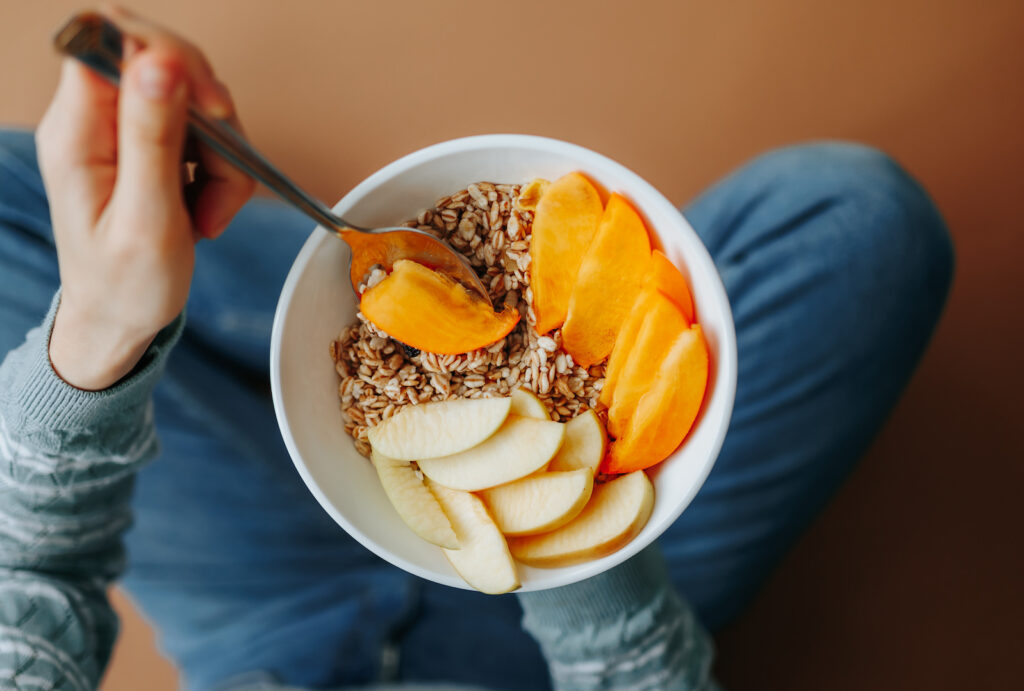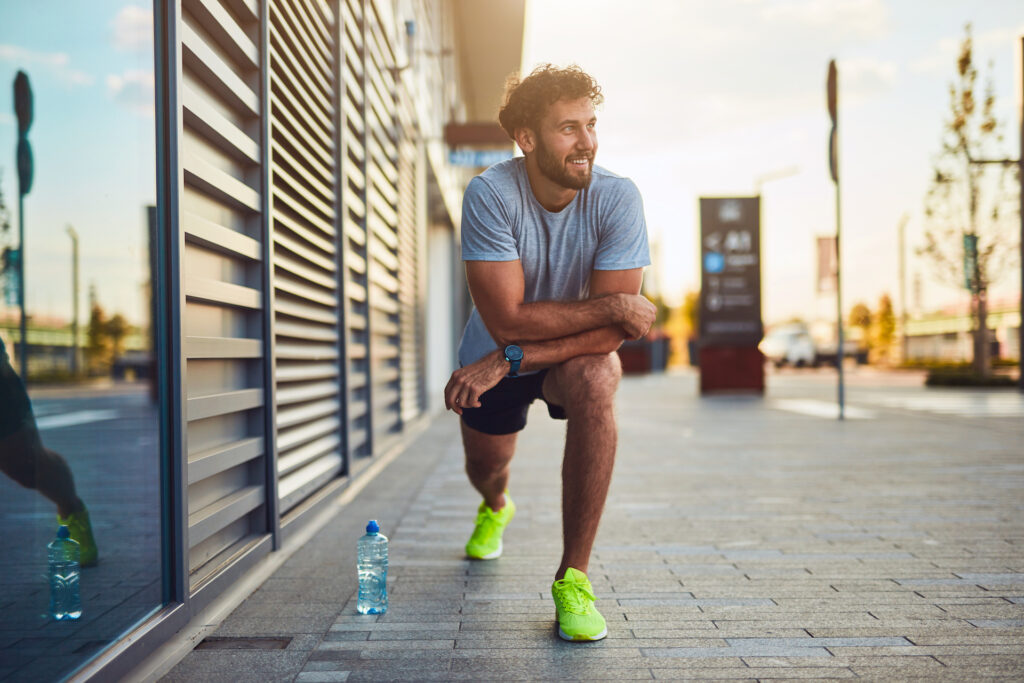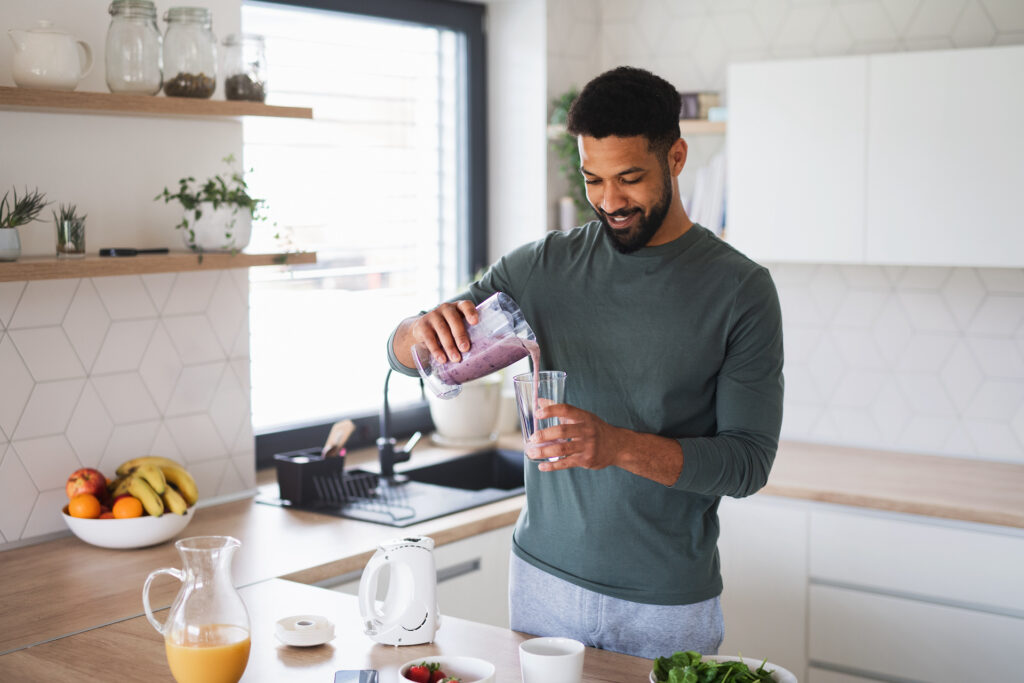In a recent blog post, we outlined some of the key reasons to keep your body hydrated.
The short version: your body needs water, and it’s your job to ensure you get enough of it. But drinking enough water doesn’t have to be a chore. In today’s article, we look at easy ways to incorporate hydration into your daily routine and share some of our hottest tips for keeping it juicy.
1. Drink Water Regularly
Indeed, consistency is key when it comes to hydration. Instead of waiting until you’re thirsty, make it a habit to drink water regularly throughout the day. According to HealthLinkBC, the average adult can benefit from six to eight 250 mL (8 fl oz) glasses of water daily, though this number can vary based on health conditions, exercise, and environment.
Listening to your body and staying in tune with your hydration needs is essential, as is consulting your healthcare professionals when appropriate.
2. Eat Hydrating Foods
Luckily, water isn’t the only source of hydration. Some of your “glasses of water” can actually come from other hydrating beverages and food.
For example, many fruits and vegetables contain a significant amount of water. According to the website MyFoodData, which pulls its raw data from the U.S. Department of Agriculture food composition data open portal, here are some of the most hydrating fruits and veggies:
Watermelon, strawberries, grapefruit, cantaloupes, peaches, Asian pears, blackberries, papayas, nectarines, plums, oranges, apricots, pineapple, raspberry, apples, blueberries, and mangos.
Incorporating water-rich foods into your diet is a delicious way to boost your fluid intake. These foods help with hydration and offer essential vitamins and minerals that support overall health. For example, watermelon—which is a whopping 92% water—also contains vitamin C and antioxidants that can help reduce inflammation and improve your immune system function.

3. Carry a Water Bottle
Keeping a water bottle handy makes it easier to sip water throughout the day. Choosing a bottle that you enjoy using, whether it has a fun design or features like a built-in straw or an infuser for adding fruit, can encourage you to drink more water. And yes, water bottles have become a sort of fashion accessory for many people, with S’well, Hydro Flask and Stanley being some of the more popular brands these days.
But you don’t have to worry about keeping up with the trends because taking care of yourself never goes out of style. Opt for a reusable bottle to minimize waste, and remember to fill it often. For example, if you’re aiming to drink eight cups of water daily, you’ll want to refill a 16-ounce bottle four times.
4. Set Reminders
It’s easy to forget to drink water, and we’re all guilty of it. Setting reminders on your phone or leaving yourself notes somewhere can prompt you to take regular sips. There are also a lot of hydration apps available that can help you track your intake and remind you to drink water at specific intervals. This is especially useful for those with packed schedules or who struggle with maintaining regular hydration. Another tip, especially if you work in an office, is to take a sip of water every time you walk by a water fountain or water cooler.
5. Monitor Your Hydration
Monitoring the colour of your urine is an easy way to check your hydration status. For the average person with no medical conditions or medications, pale yellow urine typically indicates that you are well-hydrated, while dark yellow or amber urine may signal dehydration. In some cases, it may be important to talk to your medical professionals about what staying hydrated looks like for you and adjust your water intake accordingly.
Paying attention to other signs of dehydration, such as dry mouth, headaches, or fatigue, is also important. Just keep in mind that these symptoms are not exclusive to dehydration and may be indicators of something else.
6. Stay Hydrated During Exercise
Hydration is crucial before, during, and after exercise, especially if your workouts are intense or prolonged. When you sweat, you lose water and electrolytes, which are vital for muscle function and overall energy.
Drinking water can help replenish these losses. However, for more intense activities, you might consider beverages rich in electrolytes, such as sports drinks or coconut water, which can help replace essential minerals and keep you hydrated.

7. Limit Diuretics
Beverages like coffee, tea, and alcohol can act as diuretics, increasing urine production and potentially leading to dehydration. It’s unnecessary to eliminate these drinks entirely (unless that’s one of your goals), but balancing their diuretic effects with extra water can help maintain healthy hydration levels.
8. Get Creative
If you find water boring, we don’t blame you! There’s no reason to shy away from fun and flavorful ways to spice up your water game with healthy ingredients.
For example, try making infused water by adding cucumber, mint, strawberry, basil, lemon, or ginger to your water. Let it sit in the fridge for a few hours for a refreshing, hydrating drink, especially in the summer.
Or you can blend water-rich fruits and veggies into a delicious smoothie, using combinations like pineapple and spinach with coconut water, or strawberries and blueberries with almond milk. Smoothies are a tasty way to not just boost hydration but also to get a dose of nutrients.
And don’t forget herbal teas, also known as tisanes. Options include peppermint, chamomile, or rooibos, which you can enjoy hot or cold to stay hydrated while reaping the additional benefits of those herbs.
According to the Canadian Food Guide, other healthy drink choices include milk and unsweetened fortified plant-based beverages such as almond, soy and oat, as well as unsweetened coffee and tea. Be mindful to avoid drinks with too much sodium, sugar, or processed ingredients.

9. Don’t Overdo It
Okay, we don’t want to scare you here, but drinking too much water can lead to a condition known as hyponatremia, or water intoxication, which occurs when the balance of electrolytes in your body is disrupted by excessive water intake. This can lead to symptoms like headaches, nausea, and, in severe cases, brain swelling and death.
To avoid this, be sure to listen to your body’s signals, drink water consistently but not excessively, and consider beverages with electrolytes if you’re drinking a lot of fluids.
Key Takeaways
Like most things, balance is key! Staying hydrated is a fundamental aspect of maintaining overall health, mental clarity, and physical well-being. By incorporating some of these tips into your daily routine, you can ensure that you’re getting the fluids you need to thrive. Proper hydration is a simple yet powerful tool for better health.
Just remember that everyone’s body and hydration needs are unique, so pay attention to how you’re feeling, talk to your healthcare professionals, and make adjustments as needed. Cheers to your health and hydration!
We Help With More Than Just Hydration
Yes, hydration is key, but giving adequate attention to your water intake is just one of the many different ways to be intentional about recovery and health. Curious about other ones? We invite you to get in touch!
Sunshine Coast Health Centre and Georgia Strait Women’s Clinic are world-class centres for addiction treatment and mental health through a holistic approach that considers the physical, psychological, social and spiritual aspects of individuals in treatment and recovery. If you or someone you know is struggling with substance use or mental health, give us a call today.



